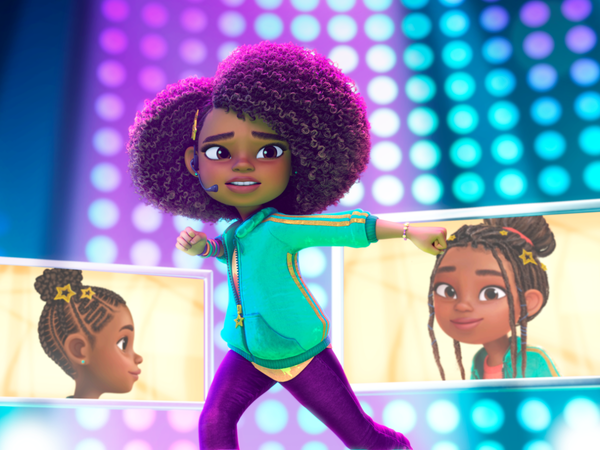 By D'Shonda Brown ·Updated November 5, 2021
By D'Shonda Brown ·Updated November 5, 2021
“Can I touch it? Wow, it’s way softer than I thought it would be.”
“You wear a hat to sleep?”
“Does every Black girl have to wear a bonnet?”
Sound familiar? It’s possibly because as a Black woman, you too have experienced microaggressions when it comes to your natural hair—or maybe you have but you didn’t recognize it back then as a Karma Christine as she navigates through her experience as a young Black girl while facing relevant topics such as friendship, Brooks admitted to experiencing microaggressions at a young age as well when it came to her natural hair. “I didn’t even have microaggressions at the time. They would straight up tell me, ‘Your hair looks like worms,’ because my hair was curly. When I had it in a natural fluffy bun, ‘it looks like you have a rabbit tail on your head’. I got it from a very young age and it wasn’t micro at all, it was in your face and the most hurtful thing, it wasn’t only from other races, it was from my race,” Brooks confided. The Orange Is The New Black actress confided that older women would approach her as an 11-year-old and tell her to consider straightening her hair but the one person who always championed her beauty and created an unapologetic safe space was her mother.
“Mothers are super special in our lives, regardless of if we want to accept their advice or not, we always double think about it. Anything our mothers say, we always put it on a pedestal,” she added. “Everybody might not have a mother like Karma’s mom, right? You’re not going to get that in every household, but I think that’s why it’s so important to have that representation, whether that’s in Karma’s World, or you’re looking at Teyonah Parris rock her hair, myself, or someone like Adrienne Moore, Ashley Blaine Featherson, [or] Tiffany Haddish, who did her chop. The more that we embrace it, the more it’s that infinity sign.”
When asked by ESSENCE what she hopes the lasting impact of the show overall, Person championed the show as one that she and the other writers wished they’d have during their childhood. “If you were a Black girl growing up in the world, you’re already dealing with these things; these things are already a part of your life. This message has power whether you are 33 today or you are just seven, eight, or nine,” she explained about the topics explored throughout Karma’s World. When speaking directly to eight, nine, and 10-year-old girls, Person shared that these girls expressed their experiences which aligned almost exactly with Karma, which further solidified that she, Bridges, and the team were going in the right direction for this show.
“We love that Netflix has given us this opportunity to tell this type of story and that it’s one of many we can tell about Black culture and celebrating Black culture in all its unique, nuanced, and different facets,” Person shared passionately. “Blackness is not a monolith. We love that Karma’s World allows us to do so much and tell so many specific, authentic stories. This episode scratches the surface of what Karma’s World can do. It’s my favorite because it really does speak to who I was when I was a kid, who Danielle was when she was a kid, and I think it’s speaking to kids now in a way that feels so beautiful and impactful.”
Watch the official “Proud of My Hair” music video from Netflix’s ‘Karma’s World’ on YouTube below!
TOPICS: karma Karma’s World ludacris Netflix
The post How Netflix’s ‘Karma’s World’ Addresses Microaggressions Black Girls Experience With Their Hair appeared first on Essence.


0 Commentaires